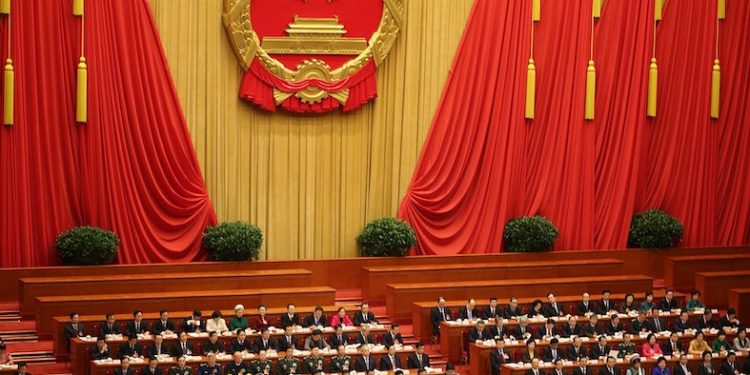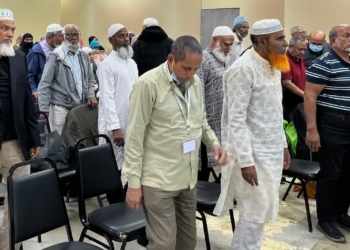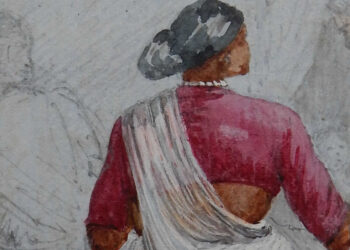Scott Williamson, University of Oxford; Eddy S. F. Yeung, Emory University, and Jonathan A Chu, National University of Singapore
Most people in most countries say they want to be governed democratically. Because democracy’s appeal is so powerful, governments and political leaders everywhere claim to be supporters of democracy.
Take China, for instance. The Chinese Communist Party (CCP) has ruled for decades under a single-party system, a system that contrasts sharply with traditional definitions of democracy. Democratic systems emphasise competitive elections for key leaders, strong protections for political rights and constraints on executive power.
Yet, ask members of the CCP and they will probably tell you that their governance is democratic because it responds to the preferences of the Chinese public. In their view, what makes a democracy is not elections, liberties and constraints. Rather, strong and unencumbered political leaders can govern well and give the people what they want.
How do people understand democracy? If people around the world hold dramatically different views of what democracy means – or even adhere to understandings of democracy that reflect a more authoritarian style of government – then democracy’s apparent global appeal may not mean very much in practice.
Researchers have long been interested in how people from different countries and backgrounds understand democracy. But it’s a complex issue and previous studies have found it difficult to determine what people really mean when they say they want to be governed democratically. In a new article published in Science, we use an experiment administered via surveys in Egypt, India, Italy, Japan, Thailand and the US to bring fresh evidence to this debate.
We presented survey respondents with paired profiles of hypothetical countries. These profiles randomised nine factors reflecting different theories of how people understand democracy. For instance, we presented respondents with information about the countries’ elections, varying whether they were free and fair, biased, or not held at all.
We also randomised whether political rights were protected or repressed, and whether the executive respected the powers of the legislature and courts or not. These three attributes reflect traditional concepts of democracy.
We also included attributes of the hypothetical countries that reflect alternative understandings of democracy. Some claim that democracy means a political system capable of producing substantial changes that benefit citizens broadly. So we varied whether economic equality in the country is higher or lower. We also adjusted whether social equality between genders is better or worse. And we randomised how much influence technocratic experts wield over policy decisions.
Others argue for a more authoritarian model of democracy in which unconstrained leaders give the people what they want in exchange for their obedience. To reflect this view, we gave information about how often the countries’ political leaders follow the majority’s preferences. We also varied whether people obey the government or not.
After reviewing the country profiles, respondents were asked to determine which hypothetical country was more democratic. Analysing which attributes influenced respondents’ choices more strongly gives us insights into how they understand what democracy means.
Reasons to be cheerful
Our results indicate that the traditional definition of democracy is widely accepted. Across the six diverse countries in our sample, respondents were much more likely to perceive countries as democratic when elections were free and fair and political rights were strongly protected.
This prioritisation of elections held across the board. People felt that way regardless of their individual characteristics such as gender, educational attainment, political ideology, age, minority status and attitudes toward geopolitics.

This finding implies some reasons to be optimistic about support for democracy. It suggests that when people say they want democratic governance, many mean competitive elections and protected liberties. This agreement is important. It makes it more likely that enough people will recognise – and potentially push back – against attempts by anti-democratic political leaders to subvert democratic governance.
Reasons for caution
But our findings also highlight points of caution. First, institutional checks and balances were less central to how our respondents understood democracy. This suggests that political leaders may be able to increase their grip on power more easily by undermining the influence of the legislature and courts.
And anti-democratic politicians can still claim to be democratic by deceptively arguing that they prioritise these elements of the political system, while actually undermining them. A prominent example is former US president Donald Trump. In 2020, Trump tried to overturn his election loss by falsely asserting it had been rigged against him.
Even in outright authoritarian countries, rulers often use controlled elections as “evidence” of their democratic character. In Egypt, for instance, the autocratic president Abdel Fatah al-Sisi declared after winning his rigged 2023 election that he would continue to build “a democratic state that protects its citizens”.
Many people may see through such claims, but autocrats can sometimes build support by using elections to present themselves as democrats – even when they are not free and fair.
While many people reject outright authoritarian notions of what democracy means, factors other than elections and liberties also influence their understanding of democratic governance. In our study, countries were often believed to be more democratic when they delivered good outcomes – for example, by providing higher gender or economic equality.
Gender equality was the only attribute in the experiment which came close to elections and liberties in its ability to shape perceptions of which countries were more democratic. Because gender equality is inherently desirable and is associated with democracy, some autocrats have successfully engaged in “genderwashing”. They’ve done this by (often nominally) reforming women’s rights to reduce pressure for more competitive elections and protected political rights.
Finally, just because people generally agree on what democracy means does not necessarily mean they will continue to support it. If democracies fail to perform effectively or represent their citizens well, people may be persuaded to accept more authoritarian models of governance.
Scott Williamson, Associate Professor, Department of Politics and International Relations, University of Oxford; Eddy S. F. Yeung, PhD Candidate in Political Science, Emory University, and Jonathan A Chu, Assistant Professor, Lee Kuan Yew School of Public Policy, National University of Singapore
This article is republished from The Conversation under a Creative Commons license. Read the original article.











